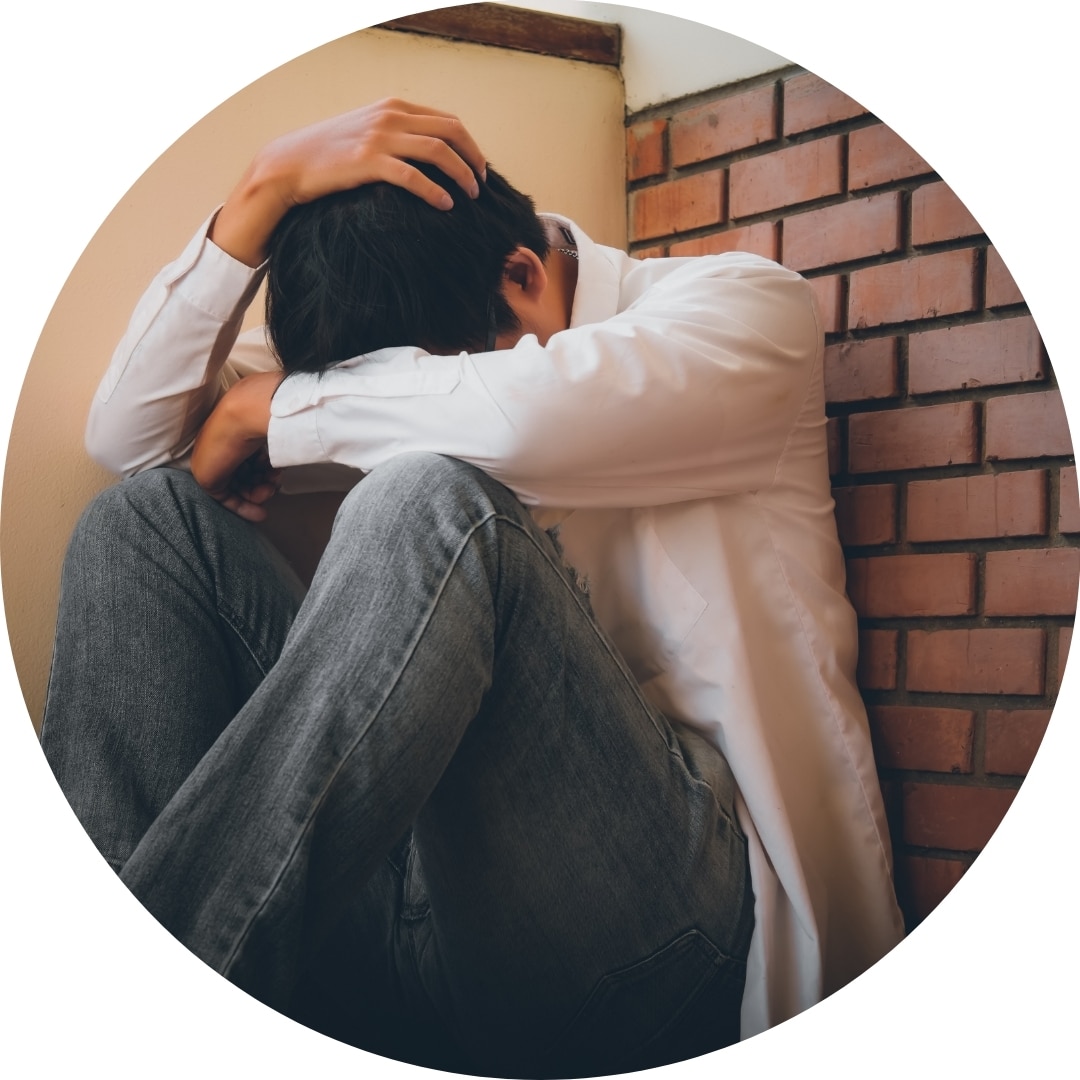LSD, also known as acid, is an illegal drug that belongs to a class of drugs called hallucinogens. When you take acid, it can cause you to see and hear things that aren’t there. It can also cause strange situations and change your perception of things. While people enough abuse the drug for its mind-altering effects, some people wonder, “Can you overdose on acid?”
Yes, taking too much of the drug can lead to an overdose. While acid overdoses are rare, that doesn’t mean taking large or frequent doses of this drug is safe. In fact, there are many different dangers associated with taking LSD. Learning more about the causes and signs of acid overdose can help you understand what can happen if you take large doses of LSD.
What Is LSD?
LSD, or lysergic acid diethylamide, is a synthetic drug that causes hallucinogenic effects. It distorts the senses and alters one’s perception of reality. LSD produces these effects by interacting with the serotonin receptors in the brain. Serotonin is a neurotransmitter that governs mood, senses, and behavior.
Is Microdosing LSD Safe?
A recent trend that has gained a lot of attention in the media is microdosing. With microdosing, a person takes a very small dose of LSD or another hallucinogen. The purpose is to feel better and treat issues like depression and anxiety.
LSD is classified as a Schedule I drug in the U.S., meaning it has no acceptable medical use. That means that microdosing LSD is illegal and not an FDA approved treatment for mental health conditions.
Also, there isn’t enough scientific research to prove that microdosing is beneficial or safe. Most of the evidence is anecdotal. One of the biggest problems with microdosing is that you don’t know the actual dose you are getting. Plus, bad trips can occur even at very low doses.
Effects of LSD
LSD is a powerful psychedelic drug that can significantly alter perception, mood, and various cognitive processes. The effects of LSD are unpredictable and vary greatly depending on the dose, the user’s personality, mood, expectations, and the surroundings in which the drug is used.
Physical effects of LSD include:
- Dilated pupils
- Increased heart rate and blood pressure
- Sweating
- Loss of appetite
- Insomnia
- Dry mouth
- Tremors
- Loss of appetite
- Lightheadedness
- Sweating
While these symptoms might seem manageable or even negligible for some people, they can exacerbate pre-existing conditions or lead to uncomfortable experiences.
LSD may disrupt the brain’s normal functioning by altering serotonin levels, a key neurotransmitter involved in regulating mood. This disruption can lead to cognitive symptoms, including:
- Visual hallucinations of shapes, colors, and patterns
- Auditory hallucinations
- Alterations in personal identity
- Distorted sense of time
- Feeling detached from your body (dissociation)
Mentally and emotionally, LSD’s impact can be profound. People often report experiencing:
- Euphoria or a sense of peacefulness
- Intense changes in thought patterns and emotions
- Mystical or spiritual experiences Significant personal insight
- Sense of interconnectedness with the universe
The effects of acid kick in pretty quickly, usually within 90 minutes. They can last for 12 hours or more.
Long-Term Effects of LSD
Long-term effects of LSD use are still being studied but may include prolonged changes to perception (even when not under the influence), persistent psychosis among predisposed individuals (a series of continuous mental issues), and Hallucinogen Persisting Perception Disorder (HPPD), where individuals re-experience visual disturbances from their trips without consuming the drug again.
Given its unpredictable nature and potential for causing long-lasting psychological effects—both beneficial in terms of personal growth and detrimental in terms of mental health crises—it’s crucial for individuals considering using LSD to weigh these factors carefully. Moreover, those seeking recovery from its use should seek professional guidance tailored to their unique experiences and challenges.
What Is A Bad Trip?
One of the biggest risks of using LSD is the unpredictability of its effects. Unlike other drugs that may have more consistent reactions, LSD can produce vastly different experiences each time it is used. This means that even if someone has used LSD before and had a positive experience, their next encounter with the drug could result in a “bad trip.”
While LSD is often revered as a transformative experience that elicits a sense of connectedness with the universe, not all experiences are positive. Some people undergo what is known as a “bad trip,” which can include:
- Paranoia
- Frightening hallucinations
- Feelings of despair
- Fear of losing control
- Extreme anxiety
- Terrifying or unusual thoughts or feelings
- Distorted perception of time and reality
- Panic attacks
- Psychotic episodes
A “bad trip” can also cause bizarre, unusual, or even suicidal behaviors like self-harm.
Can You Overdose on Acid?
An average hit of LSD is 100 micrograms. Acid overdoses have been noted at doses from 1,000 to 7,000 micrograms. However, there have been very few documented deaths due to LSD overdose. In most cases, deaths have been linked to other factors.
Signs of a Possible Acid Overdose
An acid overdose is likely to occur at extremely high doses. The signs of an overdose might include:
- Vomiting
- Seizures
- Difficulty breathing
- Hyperthermia or high body temperature
- Unconsciousness
- Coma
Massive overdoses can lead to brain hemorrhaging and cardiac arrhythmias, both of which are life-threatening. It can also lead to rhabdomyolysis, a serious condition that causes the breakdown of muscle tissue.
If you experience the above signs or witness them in someone else, it’s time to call for emergency help.

What’s the Difference Between an Acid Overdose and a Bad Trip?
LSD, also known as acid, is a powerful hallucinogenic drug that can have serious consequences when misused. While many people may use LSD for its perceived mind-altering effects, it’s crucial to understand the potential dangers associated with its use. For instance, people can overdose on LSD or experience a “bad trip.” An overdose on LSD can happen if someone takes too much of the drug. On the other hand, a “bad trip” has to do with a negative reaction to the effects of the drug itself. It can occur at any dose and doesn’t mean that you are experiencing an overdose.
Other Dangers of LSD Abuse
Even though LSD may not be commonly associated with “bad trips” and overdose, there are many other dangers associated with acid abuse.
Serotonin Syndrome
Serotonin syndrome (SS) is a life-threatening reaction that occurs when a drug causes the brain’s level of serotonin to increase. Serotonin syndrome can occur with LSD use. SS most often occurs when a person uses LSD and also takes another drug that raises serotonin, such as selective serotonin reuptake inhibitors (SSRIs), which are commonly prescribed antidepressants.
Hallucinogen-Persisting Perception Disorder (HPPD)
Also known as flashbacks, HPPD is a rare condition that occurs weeks, months, or sometimes even years after LSD use. People with HPPD re-experience the effects of the drug. These effects may include visual hallucinations and other visual disturbances. HPPD symptoms can cause distress and anxiety. HPPD can occur with any hallucinogen but is most commonly associated with acid use.
Tolerance
LSD is not physically addictive. However, it does produce tolerance, meaning a person who uses repeatedly needs greater doses of the drug to achieve the same high. Even though the risk of overdose is low, taking greater amounts of the drug does increase the risk of overdose.
The LSD Comedown
LSD produces a hangover-like experience that can last for 24 hours or more after use. If you take a lot of acid, this period can last even longer. If you experience a “bad trip,” symptoms can include anxiety, nausea, and agitation.
Although the comedown isn’t necessarily dangerous, it is unpleasant and can lead to feelings of depression, especially if it lasts a long time.
Have People Died From Using LSD?
Overall, deaths due to LSD are rare. But, there have been a few deaths attributed to LSD. In 2015, a Bangor University student’s death was caused by LSD toxicity, according to the medical examiner. In another case, a man in Bangladesh died from a cut-throat self-inflicted wound during a bad LSD trip. However, this was the first case of its kind in Bangladesh.
Treatment for LSD Misuse
If you are concerned about your use of LSD, you have several options for treatment, some of which include:
- Inpatient treatment – Inpatient or residential treatment may be helpful for some people who abuse LSD.
- Outpatient treatment – There are several different types of outpatient treatment for LSD misuse, including intensive outpatient treatment (IOP). Outpatient treatment allows a person the freedom to continue attending work or school while also engaging in treatment.
- Dual diagnosis treatment – LSD misuse can cause mental health symptoms like anxiety and psychosis. If you have mental health symptoms related to your acid misuse, you should seek a dual-diagnosis treatment program.
- Therapy – Therapies like motivational interviewing and cognitive behavioral therapy (CBT) may be helpful.
Help For LSD Abuse
LSD can cause many adverse effects on your well-being. The use of LSD can cause you to engage in harmful behaviors. Long-term continued use can lead you to develop a tolerance, which can increase the risk of overdose. If you are experiencing the negative effects of LSD use, reach out for help. You don’t have to navigate this by yourself. Call Vogue Recovery Centers today. We have treatment centers in Las Vegas, Nevada, and Phoenix, Arizona.
- https://www.medpagetoday.com/popmedicine/cultureclinic/111085
- https://www.getsurrey.co.uk/news/surrey-news/woking-teenager-died-after-taking-12917591
- https://www.ncbi.nlm.nih.gov/pmc/articles/PMC8593880/
- https://emedicine.medscape.com/article/1011615-overview?&icd=login_success_email_match_fpf
- https://www.ncbi.nlm.nih.gov/pmc/articles/PMC1129381/
- https://www.ncbi.nlm.nih.gov/books/NBK482377/

Medically Reviewed by Kelsey Jones, MS, LPC






